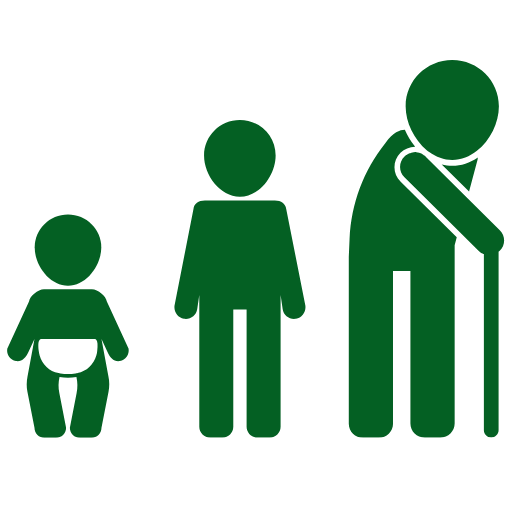About Weight Loss Calculator
How to Lose Weight Safely: Proven Strategies for Sustainable Results
When your doctor recommends weight loss, it’s crucial to approach it in a safe and sustainable way. Many people struggle with diets that leave them hungry or eliminate essential food groups, making it difficult to stick with them long-term. A consistent, healthy weight loss of 1 to 2 pounds per week is often recommended for long-term success. Here, we’ll explore science-backed strategies for losing weight safely, managing your appetite, and improving your overall health.
What is Healthy Weight Loss?
Not all weight loss methods are created equal. While some promise rapid results, losing weight too quickly can often lead to short-term success but long-term setbacks. The best way to manage your weight is through steady, consistent progress. You should aim for gradual changes that you can maintain, rather than looking for quick fixes that can be hard to sustain.
For most people, a balanced approach to eating is more effective than restrictive diets. Whether you find success with a low-carb plan or one that focuses on whole foods, there are some general principles you can follow to achieve lasting results. These include:
- Reducing your appetite and keeping hunger at bay while staying satisfied.
- Promoting steady weight loss over time.
- Improving your metabolic health, making it easier to maintain your weight loss.
How Much Weight Loss is Beneficial?
Even a modest weight loss of 5% to 10% of your body weight can offer significant health benefits. For instance, losing just 10 pounds if you weigh 200 pounds can lower your blood pressure, reduce cholesterol levels, and improve blood sugar control. While you may still fall into the overweight or obesity category, reducing your weight can decrease your risk of developing chronic conditions linked to obesity, such as heart disease and diabetes.
Rather than focusing solely on the end goal, think of your weight loss journey as a gradual process. By adopting healthier eating and exercise habits, you’ll be better equipped to sustain the changes and enjoy long-term success.
Natural Ways to Lose Weight
Many people are drawn to fad diets, meal replacement plans, or weight loss products that promise quick results. However, most of these approaches are not supported by scientific evidence and can be hard to maintain. Instead, focusing on natural, scientifically supported strategies can help you achieve lasting results.
Intermittent Fasting
One popular approach is intermittent fasting, which involves alternating between periods of eating and fasting. Studies have shown that short-term intermittent fasting can promote weight loss, especially in overweight individuals. There are several variations of intermittent fasting, such as:
- Alternate-day fasting: Eat normally on non-fasting days and consume only 25% to 30% of your usual calorie intake on fasting days.
- 5:2 diet: Eat normally for five days of the week and restrict calories to 500–600 on two non-consecutive fasting days.
- 16/8 method: Fast for 16 hours each day and limit your eating to an 8-hour window.
Keeping Track of What You Eat
One of the most effective ways to manage your weight is to keep track of what you eat. Many people find success by maintaining a food journal or using an online app to record their meals. In 2017, researchers predicted that 3.7 billion health app downloads would occur by the end of the year, highlighting the popularity of diet and weight loss apps. Tracking your food intake can make you more mindful of what you eat and help you stay on track.
Mindful Eating
Mindful eating is another powerful tool for weight management. This practice encourages you to be aware of when, where, and how you eat, helping you build a healthier relationship with food. Many people eat mindlessly, whether they’re eating while driving, working at a desk, or watching TV. This habit can lead to overeating and poor food choices. To practise mindful eating:
- Sit down at a table to eat and focus solely on your meal.
- Avoid distractions like your phone, TV, or computer.
- Take your time to savour and chew each bite, allowing your brain to recognise feelings of fullness.
- Choose nutrient-rich foods that will keep you satisfied for longer periods.
The Role of Sleep in Weight Management
Sleep plays a crucial role in your weight loss efforts. Research shows that people who get less than 5 to 6 hours of sleep per night are at a higher risk of becoming overweight or obese. Sleep deprivation can affect how your body processes calories, causing your metabolism to slow down and your body to store more fat.
Lack of sleep can also impact hormones that regulate hunger, such as leptin and ghrelin. When you’re sleep-deprived, your body produces less leptin (which signals fullness) and more ghrelin (which stimulates appetite), leading to overeating.
Making Long-Term Lifestyle Changes
The key to sustainable weight loss is creating lasting lifestyle changes. Eating well and exercising for a few weeks may help you lose weight temporarily, but you need to adopt habits that you can stick with for life. This involves:
- Honestly evaluating your current eating and exercise habits.
- Identifying the challenges that have prevented you from losing weight in the past.
- Developing a plan to overcome those challenges.
When you inevitably face setbacks, don’t give up. Instead, start fresh the next day and remind yourself that long-term changes take time. By focusing on your health and making gradual adjustments to your lifestyle, you’ll be more likely to achieve lasting success.




























